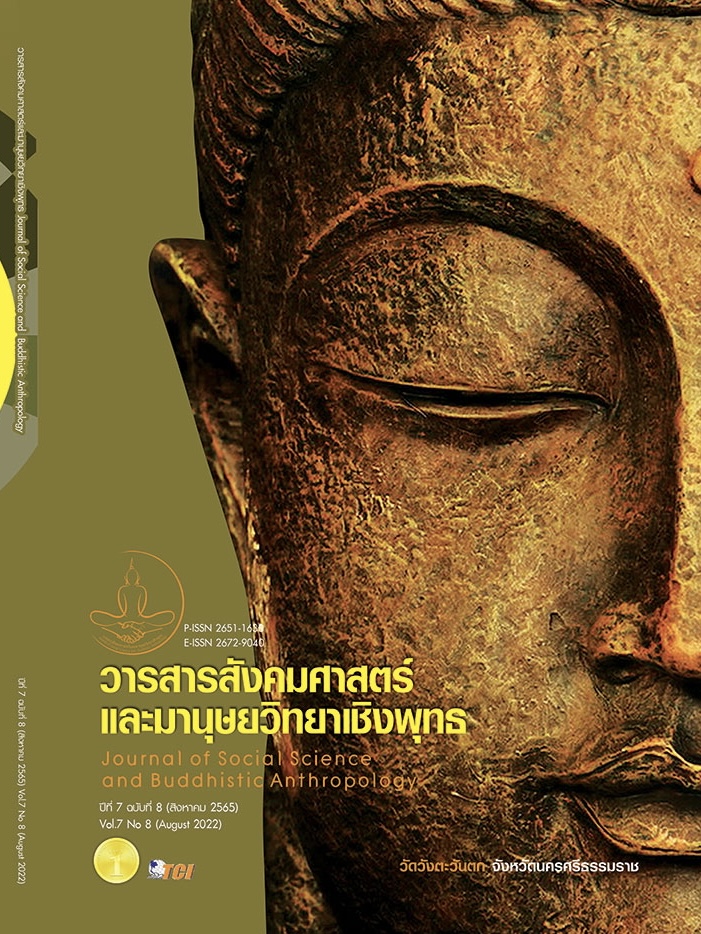PROBLEM OF HEARING CONFESSION OF SUSPECT UNDER SPECIAL SECURITY LAWS IN THE AREA OF 3 SOUTHERN BORDER PROVINCES
Keywords:
Confession, Interrogated Person, Special Security LawAbstract
The objectives of this research article were to 1) analyze the problem of hearing an interrogated person’s confession under the special security law and 2) propose a guideline for ensuring the special security law concerning confessions of interrogated person meets the international principles. This study adopted the qualitative research approach with the analysis of documents including the Emergency Decree on Public Administration in States of Emergency, B.E. 2548 (2005), the Martial Law Act, B.E.2457 (1914), the Internal Security Act B.E. 2551 (2008) and related studies. The research also adopted the field study method with the in - depth interviews of people involved in the use of special security laws. With the purposive sampling method, the sample group included security investigation officers, public prosecutors, judges and soldiers in the three southernmost provinces, namely Pattani, Yala and Narathiwat and legal scholars total 13 persons. The study results were found as follows. 1) A confession of the arrested person during the arrest stage according to the Criminal Procedure Code, Section 84, the last paragraph failed to comply with the international principles of hearing witness. A complete omission of confession without any legal exception meant Thai law was extremely rigorous. It resulted in limited evidence to prove the facts in these security - related offenses. As a result, there was insufficient evidence to punish offenders in security-related offenses. 2) Section 84, the last paragraph should be repealed. If not repealed, the text in the provision prohibiting the hearing of the arrested person’s confession as evidence should be amended and a legal exception should be added to allow the court to use its discretion.
References
“คำพิพากษาศาลฎีกา ที่ 3214/2560”. (2560). คำพิพากษาศาลฎีกา ประพุทธศักราช 2560 จัดพิมพ์โดยเนติบัณฑิตยสภา. กรุงเทพมหานคร: บริษัท ศรีสมบัติการพิมพ์ จำกัด, 2560.
กรกฎ ทองขะโชค. (2557). การบังคับใช้กฎหมายในสามจังหวัดชายแดนภาคใต้. วารสารวิชาการนิติศาสตร์ มหาวิทยาลัยทักษิณ, 5(7), 6-7.
ก่อเกียรติ์ เอี่ยมบุตรลบ. (2526). หลักการรับฟังคำรับสารภาพของผู้ต้องหา. ใน วิทยานิพนธ์นิติศาสตรมหาบัณฑิต สาขาวิชานิติศาสตร์. จุฬาลงกรณ์มหาวิทยาลัย.
ผู้พิพากษา B1-B3. (11 มิถุนายน 2563). การรับฟังพยานหลักฐานตามประมวลกฎหมายวิธีพิจารณาความอาญา มาตรา 84. (ผู้ช่วยศาสตราจารย์ ฉัตตมาศ วิเศษสินธุ์,ผู้สัมภาษณ์)
ฝ่ายความมั่นคง (ทหาร) D1-D3. (26 มิถุนายน 2563). การรับฟังพยานหลักฐานตามประมวลกฎหมายวิธีพิจารณาความอาญา มาตรา 84. (ผู้ช่วยศาสตราจารย์ ฉัตตมาศ วิเศษสินธุ์, ผู้สัมภาษณ์)
พนักงานอัยการ C1-C3. (24 มิถุนายน 2563). การรับฟังพยานหลักฐานตามประมวลกฎหมายวิธีพิจารณาความอาญา มาตรา 84. (ผู้ช่วยศาสตราจารย์ ฉัตตมาศ วิเศษสินธุ์, ผู้สัมภาษณ์)
พร้อมพรรณ ชลถาวรพงศ์. (2560). การรับฟังพยานหลักฐานที่ได้มาโดยมิชอบตามประมวลกฎหมายวิธีพิจารณาความอาญา. ใน วิทยานิพนธ์นิติศาสตรมหาบัณฑิต สาขาวิชานิติศาสตร์. จุฬาลงกรณ์มหาวิทยาลัย.
ร้อยตำรวจเอกหญิงอัญชนา สุขสาคร. (2549). การรับฟังคำรับสารภาพของผู้ต้องหาเป็นพยานหลักฐานในคดีอาญา : ศึกษาตามพระราชบัญญัติแก้ไขเพิ่มเติมประมวลกฎหมายวิธีพิจารณาความอาญา (ฉบับที่ 22) พ.ศ.2547. ใน วิทยานิพนธ์นิติศาสตรมหาบัณฑิต สาขาวิชานิติศาสตร์.
รัฐธรรมนูญแห่งราชอาณาจักรไทย. (2540). ราชกิจจานุเบกษา พุทธศักราช 2540 เล่ม 114 ตอนที่ 55 ก หน้า 61 (11 ตุลาคม 2540).
รัฐธรรมนูญแห่งราชอาณาจักรไทย.. (2560). ราชกิจจานุเบกษา พุทธศักราช 2560 เล่ม 134 ตอนที่ 40 ก หน้า 9 (6 เมษายน 2560).
สุรศักดิ์ ลิขสิทธิ์วัฒนกุล. (2563). ประมวลกฎหมายวิธีพิจารณาความอาญา ฉบับอ้างอิง. (พิมพ์ครั้งที่ 21). โรงพิมพ์เดือนตุลา: สำนักพิมพ์วิญญูชนจำกัด.
Downloads
Published
How to Cite
Issue
Section
License
Copyright (c) 2022 Journal of Social Science and Buddhistic Anthropology

This work is licensed under a Creative Commons Attribution-NonCommercial-NoDerivatives 4.0 International License.









